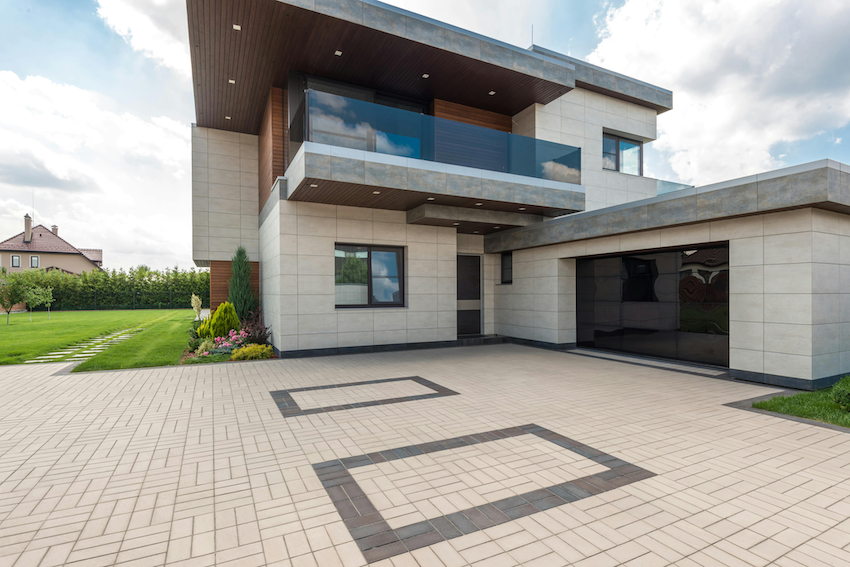A Beginner's Guide to Buying a Home

Buying a home is an incredibly daunting process, especially for first-time homebuyers. There are many moving parts involved in finding a place you want to call home. It's tempting to go around the issue by continuing to rent, but it's important to demystify the home-buying journey and better educate potential homeowners.
Things to Consider Before Buying
- Ask yourself what your long-term goals are. If you're planning to move in a few years to find a new job, then perhaps a house isn't the right fit for you. For some people who are looking to purchase a home, the goal is to change all that wasted money going towards renting into something they can tangibly own. Other homebuyers enjoy the ability to be independent and not have a landlord set the rules for the space.
- Determine what kind of home suits your needs. There are plenty of options on the market: single-family homes, townhouses, condos, co-ops, or multi-family buildings with several units. Depending on your goals as a homeowner and how much you can afford, you should weigh the pros and cons of every option before you settle on which one fits you best.
- Brainstorm what features your ideal home should have. You can dream as big as you want! After all, a new home is likely the biggest purchase in your life. However, you should have some flexibility in your wants; not everything is feasible. Determine what would be a deal-breaker and what would just be nice to have in a house.
- Mortgage Pre-approval: Before you start shopping, get a clear idea of how much a bank may be willing to lend you. Consider working with a local bank to get pre-approved for a loan before you start seriously looking at homes, as some sellers will not entertain offers that aren't accompanied by a mortgage pre-approval. Lenders determine how much you may be approved for by reviewing your credit score, your credit history, your debt-to-income ratio, your monthly income, and how long you've been at your current job, among other factors. The U.S. Department of Housing and Urban Development (HUD) also offers resources and assistance to those interested in homeownership.
- Shop around for the best mortgage. There are likely multiple lenders in your area, so you can shop around for the one who best understands your needs. Once you've selected a lender, they will verify your financial information and pre-approve you for a specified amount of money they feel you can afford.
- Buying a home within your budget is critical. Sometimes banks will pre-approve you a mortgage loan for a more expensive home, but that doesn't mean you actually need to purchase a home for that much. This is a common first-time homebuyer mistake; which is how people end up spending most of their money on their mortgage and then they have no leftover funds for home maintenance and home-related expenses. When taking out a mortgage loan look at the monthly payment, property taxes, homeowners insurance, closing costs, and maintenance fees. Consider all aspects of financial planning that go into home buying. Use a closing cost calculator to help in your financial planning.
- Make sure you've saved appropriately for a down payment. Even if you get a great loan from the bank, you will still need to put plenty of money down upfront, called a down payment. A down payment is usually 3.5% to 20% of the purchase price and it is always required while buying a house.
More: How to Save for A House
The Buying Process
- Consider working with a real estate agent. You could choose to go through the home buying process on your own, but it's easier with a real estate agent. An agent helps you locate homes that fit your needs, desires, and price range and they can help you negotiate the entire purchase process after you've decided on a house to buy. Working with a real estate agent is beneficial because their knowledge protects you from pitfalls in the buying process.
- Looking for potential properties can be done in several different ways. You can't start the buying process until you find a home and the best way to do that is to work with a real estate agent, search for listings online, visit neighborhoods you like to keep a lookout for a for sale sign, you could also put out some feelers with friends and family to see if they have any leads on a house. You should look for a house you feel you can add value to ensure a bump in equity when you decide to sell.
- Keep your credit in a holding pattern during the buying process. Once you've secured your financing information and you've been pre-approved for a mortgage, it's important you don't do anything that can alter your credit score at the last minute. Save any other major purchases you plan on making until after you're all moved in.
- Make an offer on a house! Your real estate agent is a great tool to have in your arsenal for this part, as they can help you decide how much money to offer and any additional conditions you ask of the seller. Your agent will go back and forth with the seller's agent and they will either accept your offer or issue a counteroffer, which you can either accept or offer your own counteroffer. This can continue until you reach a deal or call it quits.
- Schedule a home inspection right away. Once you have negotiated an offer with the seller, you should always obtain a home inspection before you go any further. Even a flawless-looking house could benefit from a professional going through to make sure the house is in a good condition that's safe to live in. You can never be sure the seller isn't withholding serious information about the house that may affect your living situation. If the inspection reveals serious defects, you can either rescind your offer, negotiate with the seller to make repairs, or discount the selling price so you can afford to make the repairs yourself.
- Schedule a closing date. Closing on a house involves signing all the paperwork in a short period of time such as a home appraisal, doing a title search, obtaining private mortgage insurance if your down payment is less than 20%, and completing any remaining mortgage paperwork.
Post-Home Buying
- Budget for home maintenance expenses. After buying your home it's important you keep saving your money. It may seem like as soon as you purchase the house there's nothing to save for, but homeownership comes with unexpected expenses, so it's always a good idea to have an emergency fund started.
- Perform regular maintenance on your home because after spending large amounts of money on it, you'll want to take good care of it. Not to mention, performing regular maintenance means you're less likely to be blindsided by major issues down the road.
- Always keep your eye on the housing market , you never know when you'll need to sell your home due to job relocation or financial distress.
- Your home is a financial asset , but it shouldn't be your only asset! You never know what the future will look like or what will happen with the housing market, so if you're planning on selling your home to fund your retirement, you'll want to consider other ways to save money.




